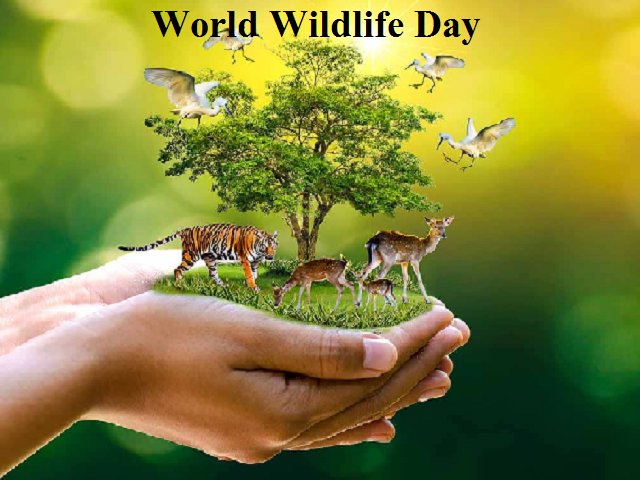|
Getting your Trinity Audio player ready…
|
By Zimbabwe Environmental Law Association
The 3rd of March is a day to celebrate and raise awareness of the world’s wild animals and plants. World Wildlife Day has become the most important global annual event dedicated to wildlife. This year, the day is being celebrated under the theme, “Recovering key species for ecosystem restoration.” It is also running concurrently with the 2022 Africa Environment Day.
As we celebrate, we also endeavour to draw attention to the conservation status of some of the most critically endangered species of wild fauna and flora and provide solutions to conserve them. According to data from the International Union for Conservation of Nature (IUCN) Red List of Threatened Species, over 8,400 species of wild fauna and flora are critically endangered, while close to 30,000 more are understood to be endangered or vulnerable. Based on these estimates, it is suggested that over a million species are threatened with extinction.
Human actions threaten more species with global extinction now more than ever. Therefore, urgent action is needed to reduce the intensity of drivers of biodiversity loss. Without such action, there will be a further acceleration in the global rate of species extinction. For example, the illicit ivory trade which today is a multi-million-dollar criminal enterprise spanning continents contributes to the degradation not only of natural environments, but also of African communities, the rule of law, and security in some of Africa’s most fragile states[1].
People everywhere rely on wildlife and biodiversity-based resources to meet their needs, from food to fuel, medicines, housing, and clothing. Unfortunately, Zimbabwe has not been spared from the impacts of wildlife crimes. The general increase in cases of wildlife crimes in the country is a result of an unprecedented surge in targeted demand for wildlife products and specimens driven by fashion, status-seeking, and trends in alternative medicine, corruption, weak law enforcement among others. There is also the aspect of environmental damage forcing people to rely on their local natural resources and alleged deficiencies in the justice system are some of the threats to biodiversity, retarding citizens’ efforts to preserve flora and fauna.
It is imperative to reverse the fate of the most critically endangered species, to support the restoration of their habitats and ecosystems, and to promote their sustainable use by humanity. Therefore, there is a need for the Government to;
- Strengthen the legal and policy framework by accelerating the reviewing of the National Wildlife Policy of 1992 and the Parks and Wildlife Act, and devolve the administration and management of wildlife to communities by giving them appropriate status authority
- Promote inclusive governance approaches through stakeholder engagement including indigenous peoples and local communities in environmental governance.
- Recognize and respect the knowledge, innovations, practices, institutions, and values of indigenous peoples and local communities, in accordance with national legislation to ensure equity and participation.
- Disclose information that allows for national accounting and monitoring of the wildlife sector management, revenue management, and expenditures. Accountability of governments to their citizens is recognized in the Sustainable Development Goal (SDG) 16 to promote peaceful and inclusive societies for sustainable development, provide access to justice for all and build effective, accountable, and inclusive institutions at all levels
- Address corruption and discourage it at all costs. Corruption is seen as one of the factors enabling illicit wildlife trafficking. Corruption may facilitate many of the crimes along the wildlife trade route, from poaching to trafficking including bribery of customs officials, illegal payments to issue export certificates, bribery of police officers and prosecutors to avoid investigations; illegal payments to manipulate court decisions. If not addressed, corruption and weak regulatory frameworks may offer several opportunities to criminal organisations to launder the proceeds of crime[2].
- ZIMPARKS, the Government of Zimbabwe, and the Ministry of Home Affairs and Cultural Heritage ought to implement mechanisms for cross-border collaboration and linkages with relevant regional and global initiatives to combat the illegal wildlife trade as a way of addressing the challenge of smuggling of wildlife products.
- Enable integrated governance to ensure policy coherence and effectiveness.
Where resource wealth such as wildlife is managed on behalf of citizens, it can lead to sustained prosperity. For ZELA, sustainable utilization of natural resources lies at the heart of promoting and fulfilling citizens’ Environmental, Economic, Social and Cultural Rights (EESCR). The organisation believes that development and conservation are not exclusive since sustainable utilisation of natural resources results in sustainable development. One of ZELA’s key approaches to supporting sustainable utilisation of the environment is to build the capacity of local institutions to take on roles and responsibilities to implement conservation. The ownership of conservation must be with the people who ultimately bear the costs and reap the benefits of the action. Inclusivity underlies ZELA’s interventions in sustainable wildlife management. As ZELA, we have enhanced effective community participation in sustainable wildlife management through awareness and capacity-building campaigns.
There is a need for concerted efforts by everyone to Recover key species for ecosystem restoration as we all work towards the achievement of UN Sustainable Development Goals 1 (No Poverty), 2 (Zero hunger) 12 (Ensure sustainable consumption and production patterns), 13 (Climate Action) 14 (Life Below Water) and 15 (Life on Land).
[1] https://www.nbcnews.com/news/
